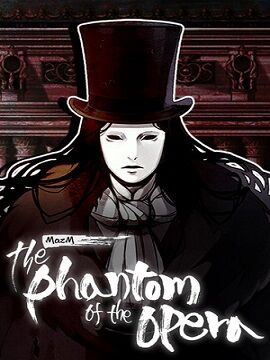
Brand
- M&S Collection 95.674
- Sandvik Coromant 34.803
- Iscar 34.560
- Portwest 31.549
- Mascot 31.327
- Routledge 23.774
- Fruit Of The Loom 23.178
- Slingsby 21.516
- Rhodes + Scholes 19.903
- Blaklader 19.011
- MTP Products 17.378
- Maroxe 16.644
- Gemini Interiors 16.631
- Nobody's Child 14.488
- BOSS 14.100
- Festo 14.004
- TopVue 13.810
- Vargus 13.314
- Nike 11.811
- Moon Magic 11.668
- Ergomat 11.649
- Sealey 11.441
- Autograph 11.022
- White Stuff 10.959
- ECCO 10.607
- Air Jordan 10.561
- Lyle & Scott 10.143
- Life Essentials 9.798
- KENZO KIDS 9.343
- Impulse 8.691
- Dams 8.677
- EUROKRAFTpro 8.167
- Sid & Sam 8.103
- Alcon 8.081
- Carpe Diem Beds 7.894
- Style and Chic 7.798
- Merkel Designers 7.620
- Pour Moi 7.501
- Unbeatable Bargains 7.488
- Tyrell & Tyrell 7.405
- CooperVision 7.312
- The Home Maker 7.162
- Monsoon 7.147
- Russell 7.042
- Direct Imports 6.974
- All Things Good 6.954
- Discount Dealers 6.900
- Prestigious Textiles 6.895
- Casper Homes 6.861
- Millennium Furniture 6.860
- R and M Furniture 6.842
- Wonders 6.821
- ORN 6.804
- TIMCO 6.771
- FatFace 6.583
- Merlin Deals 6.558
- Decor Base 6.356
- Brittle & Co 6.265
- FAG 6.259
- Vale 6.248
- Design Hut 6.147
- Kennedy 6.020
- Zoro Select 5.916
- Seasalt Cornwall 5.795
- Timberland 5.731
- CRC Press 5.656
- adidas 5.523
- BILLIEBLUSH 5.478
- Liverpool FC 5.397
- Ace & K 5.340
- Silent Gliss 5.313
- Regatta 5.311
- Stanley/Stella 5.301
- INA 5.277
- Charlotte Dunes 5.255
- Callaway 5.221
- C&P 5.216
- Sergio Rossi 5.190
- Co 5.107
- Crew Clothing 5.079
- Watco 5.022
- Outsunny 4.930
- Savings Store 4.926
- Neo 4.924
- 3M 4.906
- Finery London 4.880
- Body by M&S 4.816
- Velux 4.791
- B&C Collection 4.771
- Beeswift 4.464
- Premier 4.418
- Haynes Manuals UK 4.408
- DKNY 4.344
- Goodmove 4.340
- Ping 4.305
- Gildan 4.273
- Sia Abrasives 4.258
- Bausch & Lomb 4.166
- Salomon 4.166
- KARL LAGERFELD KIDS 4.153
Colour
- Black 188.116
- White 87.498
- Blue 47.652
- Grey 36.875
- Navy 34.498
- Red 30.476
- Brown 28.666
- Green 26.145
- Pink 23.883
- Noir 22.479
Size
- XL 39.310
- S 29.473
- M 28.331
- L 27.180
- 2XL 24.615
- Large 20.235
- Medium 20.154
- 8 20.073
- Small 19.677
- XS 18.080
Gender
Merchant
- Zoro UK Limited 915.508
- Marks & Spencer UK 295.862
- Home Done 175.082
- RS Components UK 65.049
- Kids around 64.592
- Glisshop uk 63.018
- Alensa.co.uk 58.259
- Maroxe 44.350
- Workwear Supermarket 41.506
- Kick Game 35.523
- Routledge 32.810
- MyTrendyPhone.co.uk 30.487
- Your Stylish Home 29.917
- AndLight.co.uk 24.153
- K4G.COM 21.642
- Golf Gear Direct 16.549
- Click Golf 16.273
- Suit Direct 16.027
- QD Stores 15.984
- Acorn Fire & Security 14.087
- LuisaViaRoma.com 13.404
- Plusshop UK [OLD] 12.717
- Belveto 12.000
- Nobody's Child - Cabiro 11.998
- Moon Magic 11.668
- Lime Lace 11.530
- gb.ecco.com 11.245
- Seal Medical 10.370
- Lyle & Scott 9.877
- My-Deco-Shop 9.394
- Selfmade.com 8.846
- Craigmore UK 8.434
- Ann's Cottage 8.395
- carpediembeds.co.uk 7.894
- Cowling & Wilcox 7.875
- Argento 7.790
- Wrong Weather 7.077
- Building Plastics Online 7.054
- Grace & Co Jewellery 6.970
- Cherry Lane 6.838
- Wonders - Official Site 6.821
- uk.plusshop.com 6.356
- Perfect Little Thing 6.101
- Mobility Smart 6.004
- Bathshack.com 5.505
- Liverpool FC 5.401
- Sergio Rossi UK 5.190
- Haynes.com UK 5.141
- Luisaviaroma Css 4.956
- Slam City Skates 4.881
Price (EUR)
- <5 149.797
- 5 - 10 115.766
- 10 - 20 218.877
- 20 - 50 527.225
- 50 - 100 462.039
- 100 - 200 367.806
- 200 - 500 288.336
- >500 264.054























